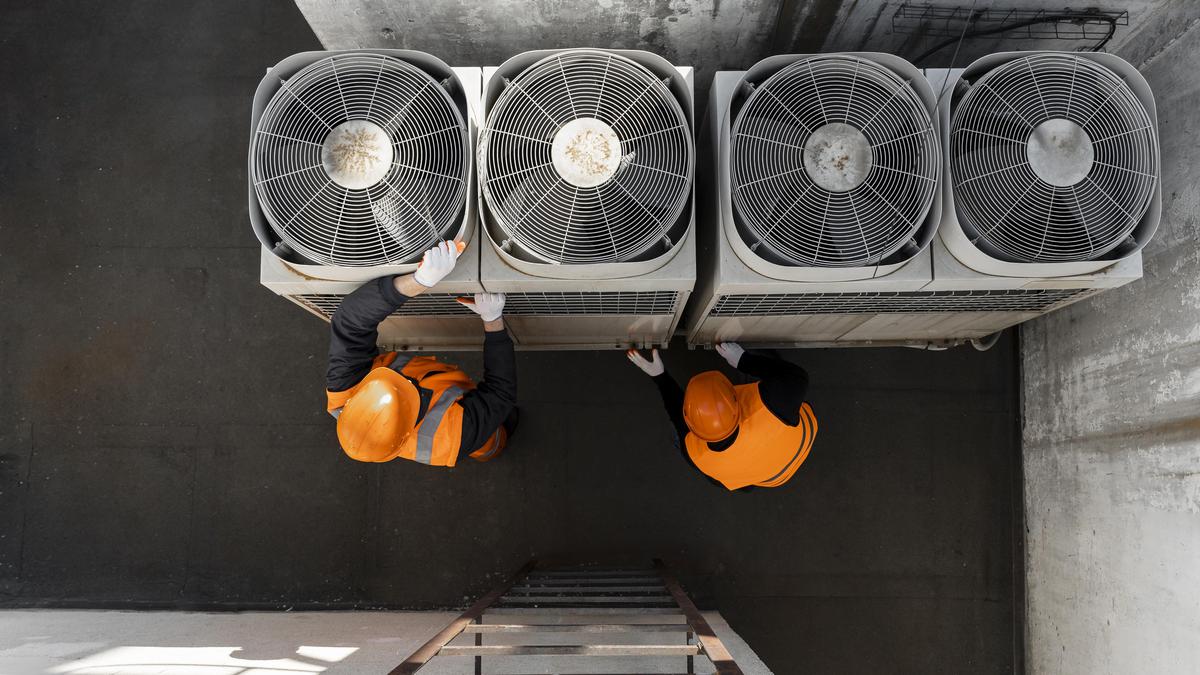
Careers in HVAC engineering
The Hindu
Careers in HVAC engineering
Maintaining a building’s Heating, Ventilation, and Air Conditioning (HVAC)system is no longer about calling a plumber or an electrician. With increasing urbanisation, HVAC systems have become highly sophisticated, often leveraging the latest in smart technology to tune ambient conditions by micro-degrees. Energy efficiency has also become a top priority, both for the sake of the environment and to reduce costs, which is another reason HVAC experts are in demand. The Internet of Things (IoT) enables HVAC automation by giving users access to data in real-time. By tracking patterns of use and factoring in forecasts of future weather, sensors in an IoT-powered HVAC system can significantly reduce energy consumption. Engineering students, thus, have a promising new career option to consider.
What exactly does an HVAC engineer do? He/she designs heating, ventilation, and air conditioning systems for buildings and create an overarching system blueprint based on the client’s needs, test devices that achieve optimum air quality and temperature control, and maintain and repair those devices as necessary. He/she may design a brand-new climate control system or retrofit an existing one for better performance. Typically, an HVAC engineer works closely with architects and other engineers to ensure that the system is as robust and efficient as it can be.
A career in HVAC requires a Bachelor’s degree in Mechanical Engineering from an accredited university. Aspirants need to have a firm grasp of subjects like Advanced Maths, Physics, HVAC theory and application, and Computer-Aided Design. HVAC engineers are known for their eye for detail and the ability to meticulously test and retest until the system parameters are right. Working knowledge of the plumbing and electrical trades is helpful, as these are closely allied with the HVAC ecosystem. As the systems rely more on smart technology, more candidates from Electronics or Instrumentation backgrounds may also join the bandwagon. There are several courses available in addition to on-the-job training.
IoT as a whole is emerging as an advanced field in the energy industry, and prospective employees should be proficient in managing the various devices that makeup IoT networks. There is a genuine lack of talent in this field, given that the IoT is a developing field and that not all professionals possess the necessary expertise. Training programmes and increased education for students interested in IoT careers are the best solutions to this problem.
HVAC and IoT engineers play a pivotal role in optimising energy usage in a building while maintaining ideal ambient conditions. They need to be able to assess the needs of each building depending on its usage, perform precise calculations on airflow and heat load/loss that will achieve the desired numbers, coordinate with architects and building managers to ensure that the systems are installed safely, and then test everything periodically to check for inefficiencies.
As the climate crisis grows and energy resources deplete, engineers will be increasingly called upon to develop and apply alternate technologies with a lower environmental impact. Those with Master’s degrees can go on to pursue management roles, while a doctorate can secure research-oriented positions. In other words, the options are manifold; which is why HVAC careers in India have gone up by 40% over the last five years and will go up a further 34% by 2025.
It’s a tough time for the global economy, as post-pandemic recovery still struggles to take off. However, heating and ventilation will always be necessary for buildings of any kind, in any location. A career in HVAC Engineering is thus a stable one, and prospects will only improve as more people choose to live more sustainably.

BJP State unit president B.Y. Vijayendra has wondered why the IAS Officers’ Association, which has now petitioned Chief Minister Siddaramaiah against BJP MLC N. Ravikumar for allegedly derogatory comments against the Chief Secretary, did not show similar interest when Chief Minister Siddaramaiah himself had insulted an IAS officer earlier.





















 Run 3 Space | Play Space Running Game
Run 3 Space | Play Space Running Game Traffic Jam 3D | Online Racing Game
Traffic Jam 3D | Online Racing Game Duck Hunt | Play Old Classic Game
Duck Hunt | Play Old Classic Game










